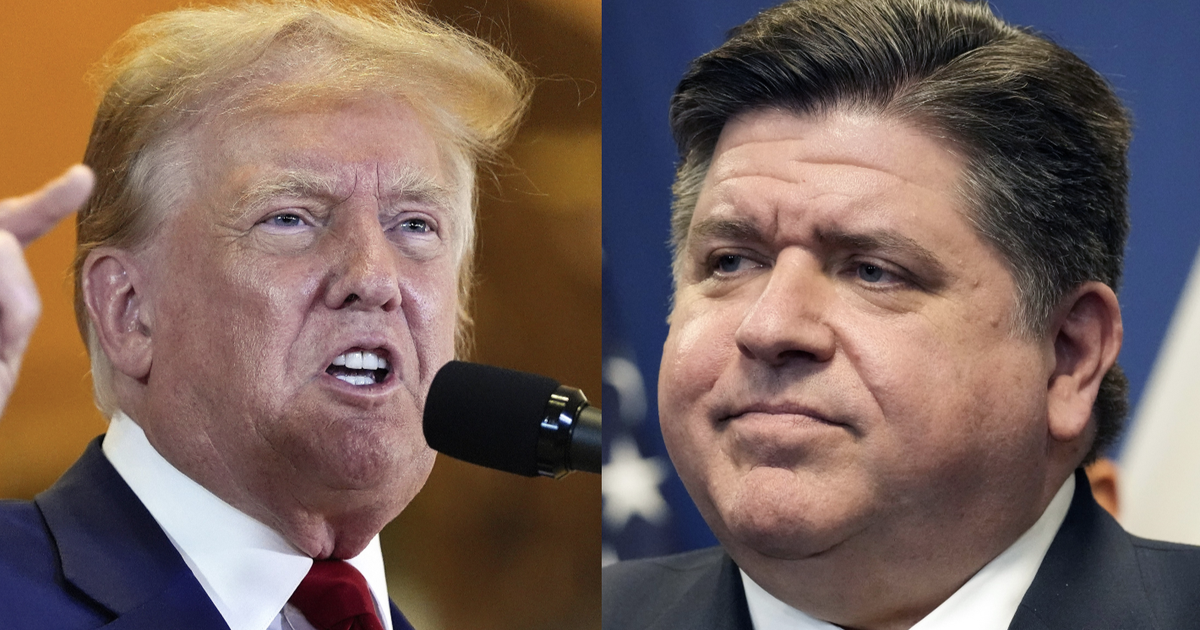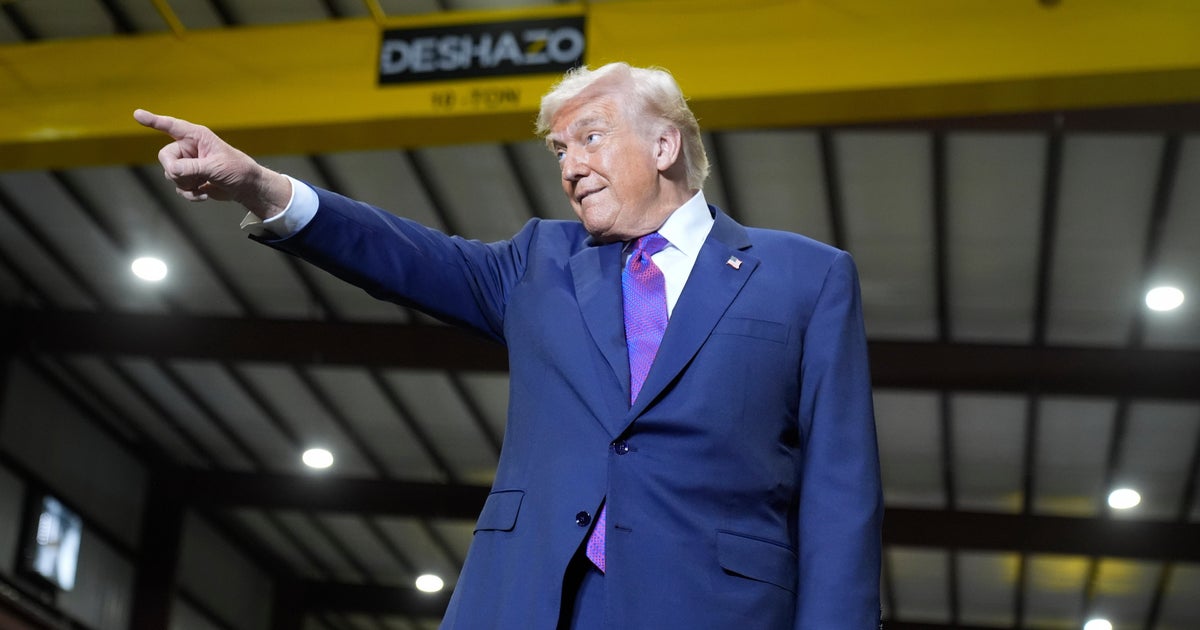Pragmatic Pelosi Points Democratic Party Toward The Center
SAN FRANCISCO (CNN) - For years, Republicans have portrayed Nancy Pelosi as a villain whose "liberal San Francisco values" could send the country into a downward spiral.
Now as speaker of the US House of Representatives for the second time, Pelosi cheerfully embraces the attack and boasts of her hometown city. She's long been a queen among progressive circles and never shies away from the labels thrown her way by the GOP.
So her latest push may seem in contrast to that cultivated image. At a time when far left progressive ideas are dominating policy conversations, the San Francisco liberal is actively encouraging her party to appeal to the middle—to "own the center left," as she puts it.
But for those who know the veteran lawmaker—whose shrewd political acumen has impressed both her critics and supporters—Pelosi is steering her party toward what she sees as the only viable pathway for victory in 2020. She's throwing muscle behind the party's moderates, recognizing the electoral reality that centrists are key to maintaining the majority.
"The Republicans have abandoned the center," she argued last week at an event hosted by the Cornell University Institute of Politics and Global Affairs. "The left can own it."
It's a form of pragmatism that Pelosi has displayed often as she manages her caucus, pushing aside some of her own personal views as she tries to keep Democrats largely united and aim for policy wins.
For their part, progressives acknowledge Pelosi's comments are strategic. Of the half dozen progressives interviewed for this story, none expressed outright concern that Pelosi's comment would have a deflating effect on the far left.
"I don't think it takes the wind out of my sails because also I knew—I ran on challenging the established logic in Washington ... because I think the majority of Americans want to challenge that logic, too," said Rep. Alexandria Ocasio-Cortez, a freshman from New York and a rock star among the party's left flank. "So, I am not discouraged at all. It's not like I came in thinking this is going to be a cakewalk."
"She has a job to do and I've got a job to do," she added.
'We must win'
For Pelosi, this approach means focusing on issues that include what she often describes as the "boldest common denominators" among her caucus—broad goals like reducing the cost of health care, investing in infrastructure and tackling government corruption. These, she argues, not only unite the party but appeal to independents and some across the aisle.
"Advocate from the left on them, but they are right down the center," she said last Tuesday. "Redefine what the center is, and don't let them define our agenda as something that is far left."
It's largely an appeal to change messaging rather than policy, but it also recognizes the importance of the party's moderates, who haven't seen quite the level of attention as progressives in the Trump era—such as headline-making freshmen like Ocasio-Cortez or Rep. Ilhan Omar of Minnesota.
"Those are issues that, whether you represent the bluest of blue seats or a purple or red seat, that's what our constituents want is for us to make progress on," said Rep. Derek Kilmer of Washington, who chairs the New Democrat Coalition—a large group of Democrats that represent more moderate districts.
Lofty ideas like the Green New Deal and Medicare for All sell great in districts like hers, Pelosi acknowledges, but not in the dozens of swing districts that Democrats flipped from red to blue last year.
"It doesn't mean we don't curb those enthusiasm(s)," she said last month at an event in London. "Reach for the moon. Put out there what you want. Go for it. Talk about it. But when we have to go into the districts that we have to win, we have to call that which we have most in common with people."
The mother of five likes to fondly recall carrying progressive signs decades ago while pushing a stroller, a nod to her long-running activism in Democratic politics.
Those signs, she subtly adds, are now in her basement.
"So I share those values, but we must win," she said at the London event. She added that even a glass of water with a "D" next to its name could have won a district like hers or that of Ocasio-Cortez. But the majority was won "right down the middle," Pelosi added, calling those races "hold-the-center victories."
That's also why Pelosi is treading carefully on one of the biggest questions Democrats are facing—impeachment—and trying to keep in check the voices in her party clamoring to bring down the President. Pelosi, having been in Congress for decades, has repeatedly warned all spring that impeachment proceedings would be too divisive.
Still, with the fervor ramping up in recent weeks amid more stonewalling from the White House, Pelosi argued last week the President is goading Democrats to go after him for his own political benefit. She again urged caution, saying let the facts take the lead.
"I wish everybody would take a deep breath and be almost prayerful about this," she said last Wednesday at a Washington Post Live event.
Being her party's 'rudder'
Pelosi has been known as a pragmatic leader in her party. One senior Democratic aide recalls Pelosi's leadership during the Affordable Care Act fight when Democrats were last in the majority, saying progressives, including Pelosi, didn't get a public option or other provisions they wanted in the bill, but they settled on what could unite the caucus.
The aide said she acts like a "rudder" on the big policy issues of the time. "And I think that is true for health care, I think that is true for some of the stupidity on the left around abolish ICE during the campaign, it's true for infrastructure, it's true for impeachment."
And even the far left wing of the party's House members appear willing to follow Pelosi at this point. Rep. Ro Khanna, one of the most progressive members of the House and who also represents the San Francisco Bay Area, said Pelosi's push to own the center left is a reflection of the challenge she faces in getting legislation passed compared to other rank-and-file members, who have more freedom in appealing to their own districts.
"I've known Nancy Pelosi for 15 years," he told CNN. "She is deeply progressive in her heart, but she also understands the importance of getting things done."
Others argue that progressive policies like Medicare for All can appeal to the middle and see support from some independents.
"I don't even know anymore what center left or center right and left mean," said Rep. Pramila Jayapal of Washington and co-chair of the Congressional Progressive Caucus. "Because when I think about centrist policies, they should be policies that serve the center of the country. That is how I think about centrists. So, if that's what she means, I am all with her."
Meanwhile, Democrats from purple districts have been fighting for months to get the center-left message out there amid all the attention around a few far-left members, especially as Republicans seize on those few Democrats to frame the whole party as socialist.
"I think Nancy Pelosi wants to win and I think she's reflecting a philosophy and a policy that enables the party to win," said Rep. Jeff Van Drew, a centrist Democrat from New Jersey. "It's always been that way. Whenever the party ... has veered too far off course, they lose. And they lose pretty badly."
Rep. Jim Himes, a Democrat from Connecticut, told reporters last month he appreciates the "intellectual diversity" among his far left colleagues but argued the House Democratic caucus is actually "more centrist" and "maybe even slightly right shifted relative to when we were in the minority."
Still, Democrats like to argue that despite their differences, they are far more willing to work together than when Republicans were in the minority and faced significant fractures between the moderates and conservatives that took down legislation at times.
"We actually want to get things done," Himes said. "We don't want to embarrass our leadership."
© Copyright 2019 CNN. All Rights Reserved. This material may not be published, broadcast, rewritten or redistributed.







